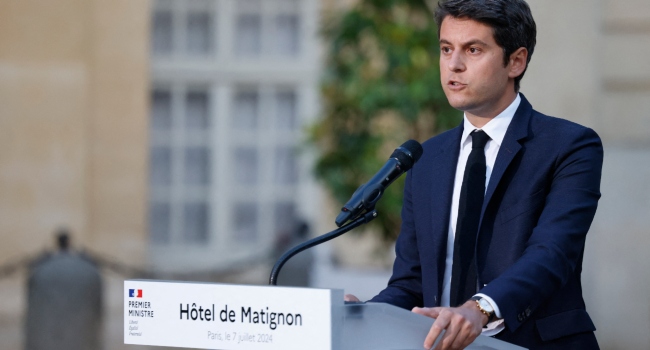
French President Emmanuel Macron has accepted the resignation of Prime Minister Gabriel Attal, whose government will now continue in a caretaker capacity amid ongoing political uncertainty.
The Elysee Palace announced this decision following an inconclusive snap election earlier this month, which left French politics in a state of gridlock as parties in the National Assembly struggle to form a viable governing coalition.
Attal and his team will manage day-to-day affairs until a new government is formed, according to the statement from the Elysee Palace. Macron emphasized the need for unity among mainstream political parties to expedite the formation of a new government, highlighting the urgency of the situation.
“The election results saw the New Popular Front (NFP), a broad alliance including Socialists, Communists, Greens, and the hard-left France Unbowed (LFI), winning the most seats but falling short of an overall majority,” the statement explained. This outcome has led to internal conflicts within the NFP, hampering efforts to nominate a consensus candidate for prime minister and delaying the process further.
Macron and Attal aim to prevent the far-right National Rally (RN) and the hard-left LFI from gaining significant influence in any new coalition, the statement noted. The president stressed the importance of preserving economic achievements and advancing social justice through coalition efforts, underscoring the challenges facing French politics in navigating a period of transition and coalition-building amidst internal party conflicts and external political pressures.
Attal, who became France’s youngest prime minister at 34, will now navigate his political future outside the government, while Macron continues his presidency with an eye towards the 2027 elections. This development marks a significant moment in French political history as the nation grapples with the complexities of governance and coalition dynamics in a post-election landscape.








